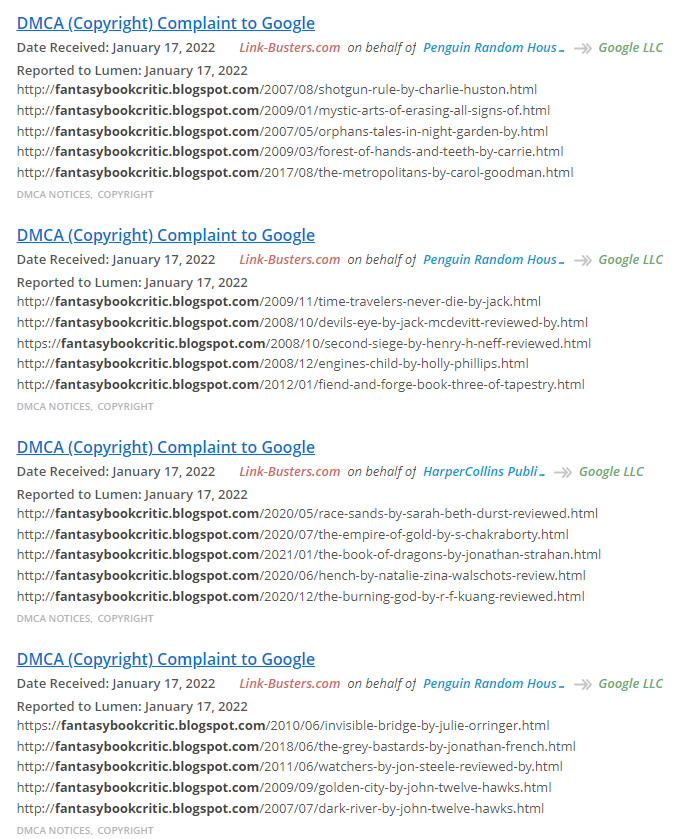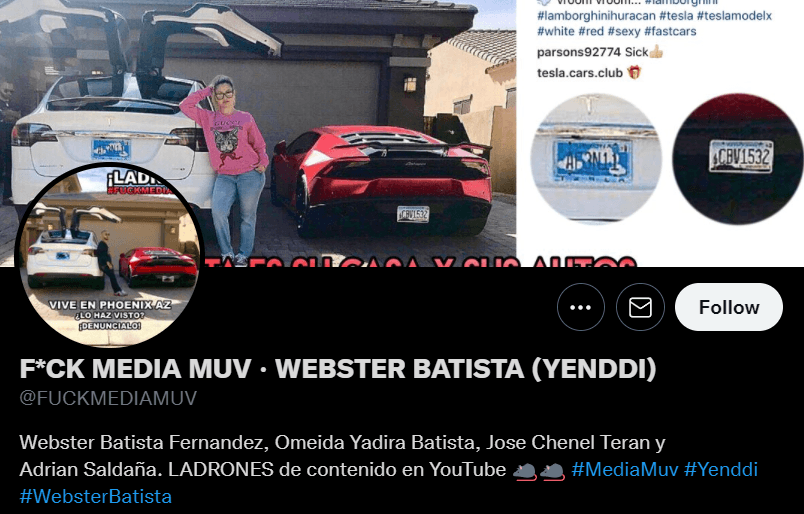On Friday, we wrote about hundreds of authors signing a letter calling out the big publishers’ attacks on libraries (in many, many different ways). The publishers pretend to represent the best interests of the authors, but history has shown over and over again that they do not. They represent themselves, and use the names of authors they exploit to claim the moral high ground they do not hold.
It’s no surprise, then, that the publishers absolutely fucking lost their shit after the letter came out. The Association of American Publishers put out a statement falsely claiming that the letter, put out by Fight for the Future (FftF), and signed by tons of authors from the super famous to the less well known, was actually “disinformation in the Internet Archive case.” And, look, if you’re at the point you’re blaming the Internet Archive for something another group actually did, you know you’ve lost, and you’re just lashing out.
Perhaps much more telling is that the Authors Guild actually put out an even more aggressive statement against Fight for the Future. Now, as best selling author Barry Eisler (who signed onto Fight for the Future’s letter) wrote write here on Techdirt years ago, it’s been clear for a while that the Authors Guild is not actually representing the best interests of authors. It has long been a front group for the publishers themselves.
The Authors Guild’s response to the FftF letter simply confirms this.
First, it claims that authors were misled into signing the letter by an earlier, different draft of the letter. This is simply false. The Authors Guild is making shit up because they just can’t believe that maybe authors actually support this.
They do name one author, Daniel Handler (aka Lemony Snicket), who had signed on, but removed his name before the letter was even published. But… I’m guessing the real reason that probably happened was that the publishers (who learned about the letter before it was published as proved by this email that was sent around prior to the release) FLIPPED OUT when they saw Handler’s name was on the letter. That’s because in their lawsuit against the Internet Archive’s open library project, they rely heavily on the claim that Lemony Snicket’s books are available there.
It seems reasonable to speculate that the publishers saw his name was on the letter, realized it undermined basically the crux of their case, and came down like a ton of bricks on him to pressure him into un-signing the letter. That story, at the very least, makes more sense than someone like Handler somehow being “tricked” into signing a letter that very clearly says what it says.
The Authors Guild’s other claims are equally sketchy.
The lawsuit against Open Library is completely unrelated to the traditional rights of libraries to own and preserve books. It is about Open Library’s attempt to stretch fair use to the breaking point – where any website that calls itself a library could scan books and make them publicly available – a practice engaged in by ebook pirates, not libraries.
This completely misrepresents what the Open Library does, and its direct parallel to any physical library, in that it buys a copy of a book and then can lend out that copy of the book. The courts have already established that scanning books is legal fair use — thanks to a series of cases the Authors Guild brought and lost (embarrassingly so) — and the Open Library then only allows a one-to-one lending of ebooks to actual books. It is functionally equivalent to any other library in any way.
And this is actually important, living at a time when these very same publishers are trying to use twisted interpretations of copyright law, to insist that they can limit how libraries buy and lend ebooks in ways that simply are not possible under the law with regular books.
Also, there’s this bit of nonsense:
The lawsuit is being brought only against IA’s Open Library; it will not impact in any way the Wayback Machine or any other services IA offers.
This is laughable. The lawsuit is asking for millions and millions of dollars from the Internet Archive. If it loses the case, there’s a very strong likelihood that the entire Internet Archive will need to shut down, because it will be unable to pay. Even if the Internet Archive could survive, the idea that this non-profit would be forced to fork over tens of millions of dollars wouldn’t have any impact on other parts of its offerings is laughable.
Fight for the Future has hit back at these accusations:
As expected, corporate publishing industry lobbyists have responded by attempting to undermine the demands of these authors by circulating false and condescending talking points, a frequent tactic lobbyists use to divert attention from the principled actions of activists.
The statement from the Authors Guild specifically asserts, without evidence, that “multiple authors” who signed this letter feel they were “misled”. This assertion is false and we challenge these lobbyists to either provide evidence for their claim or retract it.
It’s repugnant for industry lobbying associations who claim to represent authors to dismiss the activism of author-signatories like Neil Gaiman, Chuck Wendig, Naomi Klein, Robert McNamee, Baratunde Thurston, Lawrence Lessig, Cory Doctorow, Annalee Newitz, and Douglas Rushkoff, or claim that these authors were somehow misled into signing a brief and clear letter issuing specific demands for the good of all libraries. Corporate publishing lobbyists are free to disagree with the views stated in our letter, but it’s unacceptable for them to make false claims about our organization or the authors who signed.
They also highlight how many authors who signed onto the letter talked about how proud they are that their books are available at the Internet Archive, which is not at all what you would expect if the Open Library was actually about “piracy.”
Author Elizabeth Kate Switaj said when signing: “My most recently published book is on the Internet Archive—and that delights me.” Dan Gillmor said: “Big Publishing would outlaw public libraries if it could—or at least make it impossible for libraries to buy and lend books as they have traditionally done, to enormous public benefit—and its campaign against the Internet Archive is a step toward that goal.” Sasha Costanza-Cook called publisher’s actions against the Internet Archive “absolutely shameful” and Laura Gibbs said “it’s the library I use most, and I am proud to see my books there.”
They, also, rightly push back on the totally nonsense claims that FftF is “not independent” and is somehow a front for the Internet Archive. I know people at both organizations, and this assertion is laughable. The two organizations agree on many things, but are absolutely and totally independent. This is nothing but a smear from the Authors Guild which can’t even fathom that most authors don’t like the publishers or the way the Authors Guild has become an organization that doesn’t look out for the best interests of all authors, but rather just a few of the biggest names.
Source: Publishers Lose Their Shit After Authors Push Back On Their Attack On Libraries | Techdirt






